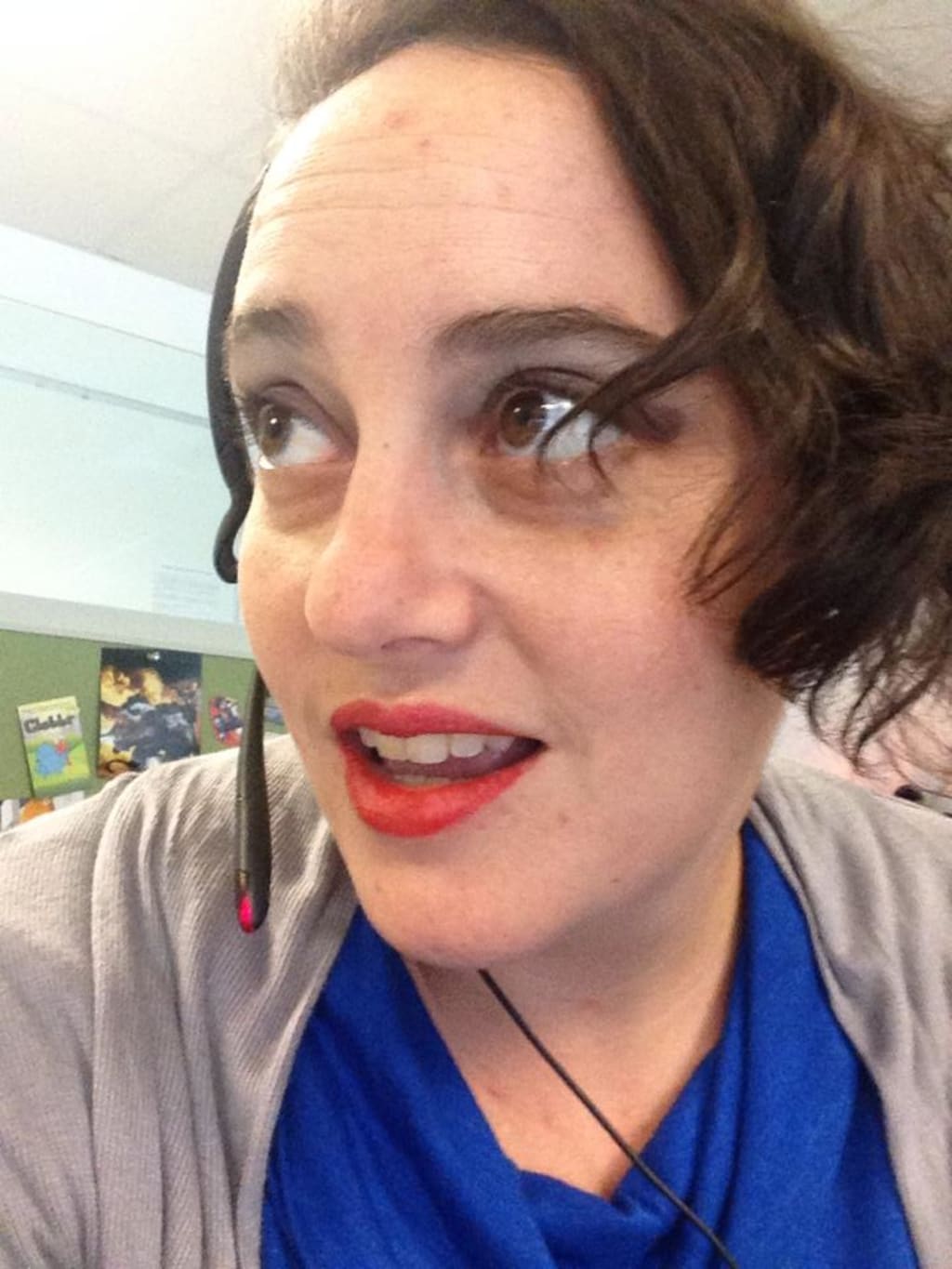Why I Always Drop The F-Bomb while Conducting Phone Interviews
And Other Secrets of an Unconventional HR Director

I have some non-standard practices when it comes to interviewing in general, but particularly when it comes to phone interviews, I get an incredible amount of feedback and almost all of it is incredibly positive, even if the candidate didn’t do well. I have four major components to a phone interview, no matter what the position, which I will lay out for you in this piece along with why I do them, and why they are effective.
1. Avoid scenario questions.
We have all answered these, and they are terrible, and awkward, and the only way to answer them correctly is to lie, and if you don’t lie, you’ll sound like a jerk. These are the questions that go something like, “You notice your co-worker taking a package of pens from the stock room and putting them into their pocket, what do you do?” They want you to say that you will tell someone, because petty theft is wrong, but the truth is, almost none of us would say anything about that if we actually witnessed it. Maybe if we worked for small companies, but if we worked for monolithic corporations, the odds are very low. But if I say that, I won’t get hired because I have no principles, or am morally bankrupt or whatever psychobabble the recruiter wants to add to the top of my resume with their presumably immaculate hand writing. Why is this a big deal? You’re setting a precedent. You would rather someone lie to you, than be honest. What is more than even that, you are telling them, if they don’t lie to fit into your pink-cloud perfect world, then you will judge them and find them wanting. You are saying you want their skills, but without all that pesky personality.
2. Switch gears twice—once with ample warning, the second with no warning at all.
I am kind of ruthless with this. I ask some fairly basic questions about the schedule, and the commute, things that really don’t require a lot of brain power, a get-to-know-you question or two depending on the role, then I give them ample warning, saying something along the lines of, “I want to ask you some technical questions now...” and then further prepare them by loosely covering the scope of the questions I will be asking. This allows them time to shift their brain into technical mode. If they can’t manage to switch gears in the two minutes of explanation about shifting gears, chances are they aren’t going to work out. Then I ask them the technical questions, usually increasing in difficulty as we progress. And then after what is arguably the most technical and difficult question in what at this point has been a 45 minute discussion, with no warning at all, I ask them something silly. Sometimes it is something completely zany like, “What is the air speed velocity of an unburdened swallow?” But more often than not it is something along the lines of, “What are some items off your bucket list?” or “What are your top 5 favorite records of all time?” You’d be surprised how many people go completely silent, before answering, others just laugh nervously and don’t answer at all. It might seem mean, and yeah I guess it is a little, but it also tells me two things. How they do on the long sloping curves, and the sharp turns. The environment I work in is aggressively innovative, and constantly changing, and both types of flexibility are incredibly important.
3. Say the F-Word at least once during the conversation.
Now I know what you’re thinking! “Oh my lord Paige! Why would you use such offensive language in a professional environment! Surely you don’t mean the F-Word??!? The F-Bomb??!” And to you, I have the following to say. Yes the fuck I do. Makes you uncomfortable doesn’t it? Reading that word in what is supposed to be a professional medium, is weird. Even though I mentioned it in the title of this article, it still caught you off guard. Surely I am not serious about this, but I assure you, I fucking am. Here’s why; it’s a way that I can catch someone off guard in a casual way. Show them a little bit of who I am as a person, and invite them to do the same. I have received surprised laughs, and huge sighs of reliefs, but casually dropping my favorite sentence enhancer into explanations on the benefits of strict mode in JavaScript, and suddenly, it’s like I am talking to a whole new person. That’s who I want to see. That is the person I will be working with, not the stuffy professional mask most people try to put forth on initial conversations.
4. Be a real and authentic person through the entire conversation.
Now I can hear the objections now, but stay with me. Even if you think you are being a real person while you talk to candidate after candidate, I promise you that the person on the other end of the phone knows you’re reading off a list of approved interview questions, and that you don’t want to be doing this. They know that you are tired, and probably over worked. They just want the job, and you are the gate keeper. Now you can choose to be the kind of gate keeper who barks out questions without any conversation, or you can make those awful questions flow as part of a conversation. That’s what I always try to do. I don’t make my candidates play 20 questions, I have a conversation with them, that is centered around their experiences and knowledge, and as a result I often get a much more authentic picture of their limitations, and the areas that they excel in.
Am I saying that this method is perfect? No. Of course not. But it is what works for me, and everyone in my office is perfectly well suited to the jobs they are doing, are poised to grow into their goals, and gets a long. Culture-fits are just as important as skills, and how will you ever know if someone is well suited to work next to you if you just ask them hypothetical questions, without learn anything about them as a person?
About the Creator
Paige Graffunder
Paige is a published author and a cannabis industry professional in Seattle. She is also a contributor to several local publications around the city, focused on interpersonal interactions, poetry, and social commentary.






Comments
There are no comments for this story
Be the first to respond and start the conversation.